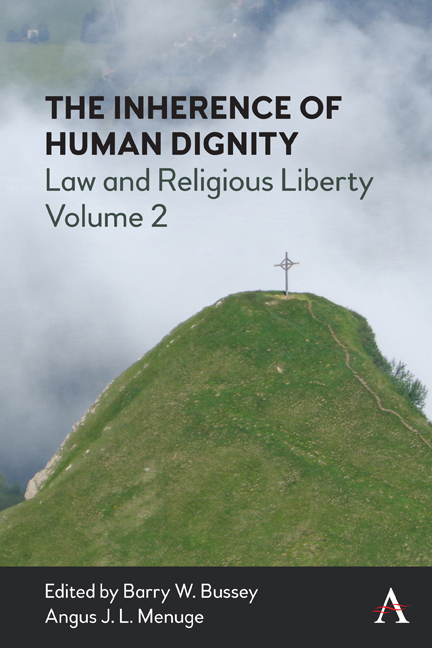Introduction
Published online by Cambridge University Press: 24 February 2022
Summary
Making Dignity a Practical Legal Reality
The chapters presented in this volume build on those in the first volume. Almost all of these chapters were presented at the IVR Congress in Lucerne, July 2019. Less than a year after we congregated on the shores of beautiful Lake Lucerne, at the base of Mount Pilatus, we found ourselves facing the practical implications of how we understand and interpret the concept of human dignity as the world gropes its way through the COVID-19 pandemic. The crisis confronts us with the ramifications of society's response to protect the dignity of the vulnerable. We wrestle, as did previous generations, with balancing the need to protect human life from disease – in our situation, by isolation and physical distancing – alongside the requirements of a functioning, healthy society which defends and depends upon basic freedoms and the well-being of citizens in all aspects, from employment to education. Throughout the pandemic, medical personnel, scientists and politicians have been forced to struggle with the life-and-death implications of their decisions and policies. Undergirding these tensions is the presupposition that human beings have inherent dignity: no matter how old, how compromised by illness, they deserve protection from the COVID-19 virus even at high costs to the economy (Koop 2020). And, in the context of this global suffering and uncertainty, additional trauma has been ignited (and exposed) by the brutal killing, at the hands of the Minneapolis Police, of Mr George Floyd, a black man. The ensuing civil unrest and calls for social justice have yet again raised the issue of human dignity for all people, regardless of race.
These current events illustrate the practical complexities of applying the concept of human dignity to real life: a task or goal which may, at times, appear to be as elusive as an artist nailing an aesthetic display of Jell-O to a wall. There is no guarantee that an abstract construction with theoretical validity will meet the requirements of reality in its implementation. In his introduction to the first volume of this two-volume set, my esteemed coeditor, Angus Menuge, aptly describes the struggle to articulate the concept of ‘inherent human dignity’
- Type
- Chapter
- Information
- The Inherence of Human DignityLaw and Religious Liberty, Volume 2, pp. 1 - 10Publisher: Anthem PressPrint publication year: 2021



